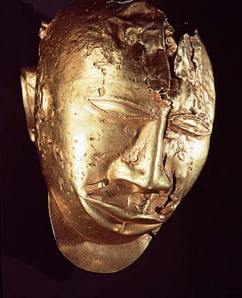August 2, 2009
Clingingsmith, David and Williamson, Jeffrey G. (2008) “Deindstrialization in 18th and 19th century India: Mughal decline, climate shocks and British industrial ascent”, Exploration in Economic History, 45/3, 209-234.



Between 1700 and 1900, India went from being an industrial powerhouse to forgotten backwater. Why didn’t India manage to retain its edge and how did Britain overtake the giant? Read the rest of this entry »
 2 Comments |
2 Comments |  Asia, Early Modern, Economic History, reading notes | Tagged: British Empire, colonial, colonies, colony, deindustrialization, East India Company, India, industrial revolution, industry, Mughal, proto-industry, South Asia, textile |
Asia, Early Modern, Economic History, reading notes | Tagged: British Empire, colonial, colonies, colony, deindustrialization, East India Company, India, industrial revolution, industry, Mughal, proto-industry, South Asia, textile |  Permalink
Permalink
 Posted by Ben
Posted by Ben
May 19, 2009
Austin, Gareth (2009) “Coercion and markets: the political economy of slavery in West Africa, c.1450-1900”, paper presented for the Séminaire: Travail et conditions de vie en Afrique dans la longue durée, at the Paris School of Economics, 18/05/09.



Introduction
The use of slave labour in pre-colonial Western Africa has often been attributed to the small human densities in the region. But this argument is in contradiction with the fact that slavery was relatively uncommon in the area before the development of the Atlantic slave trade. Indeed, it is the European demand for African bond labour that created the mechanisms that were subsequently used by the “domestic” slave trade. Those two markets were complementary, in particularly, the Atlantic slave trade concentrated on men while the domestic demand was centred on women. Read the rest of this entry »
 Leave a Comment » |
Leave a Comment » |  Africa, conference, Early Modern, Economic History, Modern Era | Tagged: 1600s, 1700s, 1800s, 1900s, Côte d'Ivoire, cocoa, colonies, colonisation, Ghana, slave, slave trade, slavery, West Africa |
Africa, conference, Early Modern, Economic History, Modern Era | Tagged: 1600s, 1700s, 1800s, 1900s, Côte d'Ivoire, cocoa, colonies, colonisation, Ghana, slave, slave trade, slavery, West Africa |  Permalink
Permalink
 Posted by Ben
Posted by Ben
January 26, 2009
McCants Anne E.C. (2008) “Poor consumers as global consumers: the diffusion of tea and coffee drinking in the eighteenth century”, Economic History Review, 61/S1, 172-200.



Introduction
The 17th century saw the introduction of “foods would entirely eclipse the centrality of bread in the rituals of western sociability” (p.172). The idea of a consumer revolution may sound far fetched since the industry lacked the power to reshape the structure of demand and the colonial trade only accounted for 17% of the Dutch international trade at its peak in the 18th century (or 1% of GNP of western Europe and 10% of gross investment; p.173). So were colonial goods (tea, coffee, chocolate, tobacco and sugar), generally considered a significant part of the Industrious Revolution, as important as they are commonly thought to be? Read the rest of this entry »
 Leave a Comment » |
Leave a Comment » |  Early Modern, Economic History, Europe, reading notes | Tagged: 1600s, 1700s, Batavia, chocolate, coffee, colonial goods, colonies, consumer revolution, consumption, food, industrious revolution, Low Countries, Netherlands, retail, standards of living, sugar, tea, trade, urban, VOC |
Early Modern, Economic History, Europe, reading notes | Tagged: 1600s, 1700s, Batavia, chocolate, coffee, colonial goods, colonies, consumer revolution, consumption, food, industrious revolution, Low Countries, Netherlands, retail, standards of living, sugar, tea, trade, urban, VOC |  Permalink
Permalink
 Posted by Ben
Posted by Ben






 Posted by Ben
Posted by Ben 




